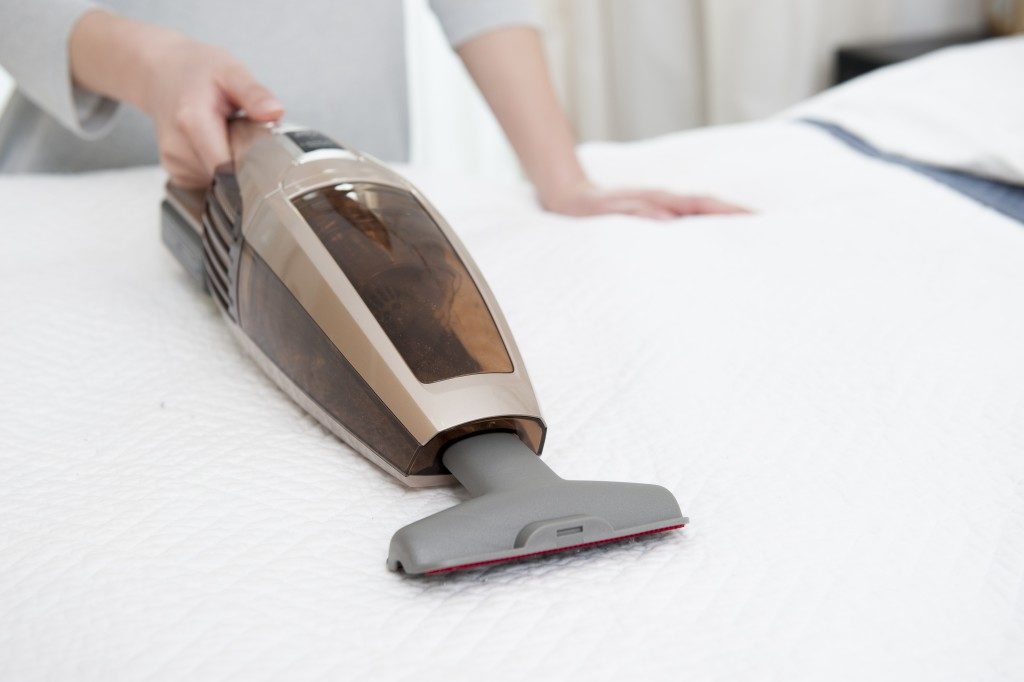A vacuum cleaner is a great tool that makes cleaning faster and more precise. They come in different features, becoming more high-tech and advanced as time goes by. Splurging on a high-end, top-of-the-line brand of vacuum cleaner means you care a lot for your home’s cleanliness that you are willing to shell out that amount of cash. However, you’ll only get the best value for your money if you know how to use the machine properly. If you have something as lavish as a Dyson vacuum cleaner, you’d care to know what could potentially harm it. In Utah, there are many companies that offer Dyson vacuum repair services. They are always ready should you need their assistance.
Here are five common causes of vacuum cleaner damage, along with tips on how to prevent them:
1. Vacuum cleaning the wrong “dirt”
The vacuum cleaner’s ability to suck in dust so fast makes it tempting to use it on other dirt and debris as well. If it will save us the time of sweeping floors or picking up the mess by hand and then throwing them out, the prospect of a vacuum cleaner doing the job for us is appealing. However, this habit turns out to be a common mistake among vacuum cleaner owners. Putting in the dirt that isn’t dust will cause our vacuums to get damaged in time. Here are some of the objects that we shouldn’t put into a vacuum cleaner:
-
Coins and small toys
Vacuuming coins is highly likely to be an honest mistake; it’s still valuable, after all. The same goes for little toys. When you have children in the house, they tend to leave these obstructions on the floor. Coins and small toys could get crushed or torn inside the vacuum cleaner, affecting the bag, cutting it or tearing it. These little culprits might wreck the motor, as well.
-
Cosmetic Residue
You might think something as unassuming as dust from your powders and other makeup products is safe for vacuuming. Makeup residue includes leaked (liquid) foundations, lipsticks, eyeshadows, etc. These products may contain chemicals that could harm the machine when melted.
-
Food leftovers
Leftovers such as coffee grounds, vegetables, salads, fruits, and the like are dangerous to be inside the vacuum cleaner. The sizes of this rubbish could clog the pipes. If left for long periods, mold and mildew may start to grow inside the machine, not to mention make it produce a foul odor.
-
Construction dust and debris
Fine debris from construction potentially contain particles that may cause a bad reaction to the vacuum’s motor. It may be burned out by these harmful particles, and later on, get exposed in the air.
2. Not Checking the Bag or Dirt Bin
If you use your vacuum cleaner on a daily basis, the dust bag must be emptied regularly. An overfilled bag makes the suction weaker and affects the overall performance of the cleaner. For bagless vacuum cleaners, locate and check the dirt bin and check if it is full. Keeping the bag and dirt bin empty will keep the vacuum working optimally.
3. Hose Clogs
If emptying the bags and dust bins still didn’t solve the suction problem, it is possible that the hose is clogged. Open up the machine and locate the hose and every other opening. Some objects may be lodged in there that you could extract by yourself. If the blockage is more serious than you think, you will need to ask for the assistance of a professional.
4. Water or Any Liquid Damage
Vacuums are electronic devices, so exposing them to liquids, most commonly in water, will naturally damage them. You may get affected as well by electrocution. There are, however, wet or dry vacuums. Before getting your vacuum cleaner near water, make sure you own the one specifically designed for safe exposure to liquids. Regular vacuum cleaners are not supposed to get wet.
5. Overheating

Vacuum cleaners are equipped with thermal protectors, making them resistant to burn-outs. When it overheats, it means it has gone beyond the limits of its thermal protection. An overheated vacuum isn’t always a case of a damaged machine; overfilled bags/bins and obstructions in the brush roll may have caused the problem. If the vacuum still doesn’t start in a while after overheating, it may indicate that the motor needs to be replaced.
Maintaining your vacuum cleaner should be easy. Do not abuse your machine and make it do what it’s not supposed to do. Economical or high-end, it still needs the same amount of care. Costly repairs and frequent replacements are liabilities that can totally be prevented by being a responsible vacuum cleaner owner.




